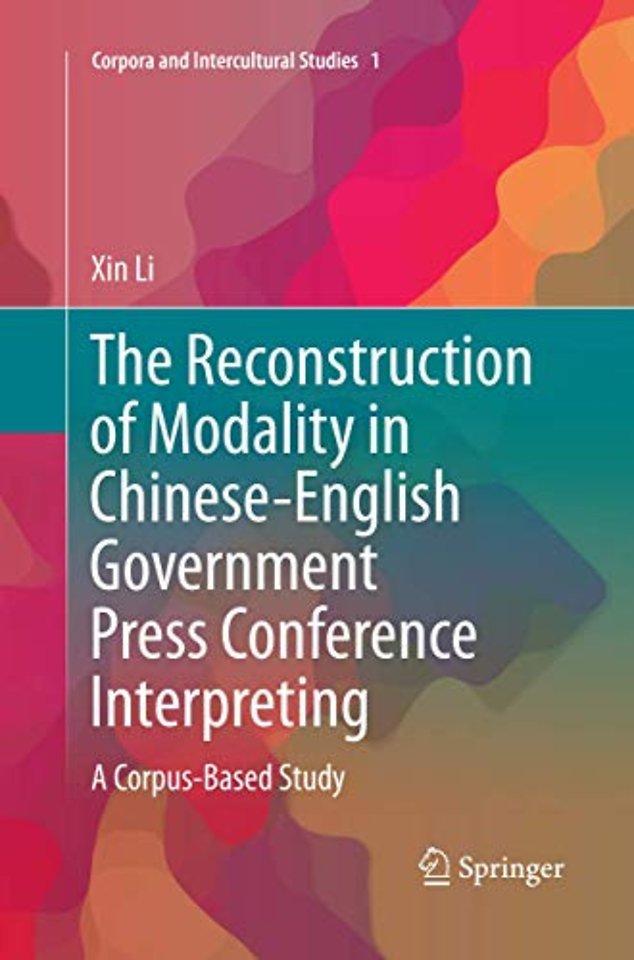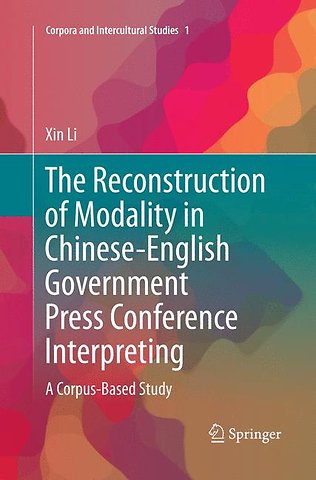The Reconstruction of Modality in Chinese-English Government Press Conference Interpreting
A Corpus-Based Study
Paperback Engels 2018 9789811338472Samenvatting
This book investigates a special genre of interpreting in the Chinese context, namely Government Press Conference (GPC) Interpreting. Drawing on the modality system from Systemic Functional Grammar and a corpus of 21 interpreting events, the project explores the regular patterns of modality shifts in Chinese-English GPC interpreting and seeks explanations in the sociocultural context. As a corpus-based project, the book covers qualitative analysis of the sociocultural context, qualitative analysis of the interpersonal effects of modality shifts, and quantitative analysis of modality shifts. This book will contribute to the understanding of the distinctive features of GPC interpreting in China, shed new light on the rendition of modality between Chinese and English in specific contexts, and also inspire new thoughts on the nature of interpreting in general.
Specificaties
Lezersrecensies
Inhoudsopgave
Rubrieken
- advisering
- algemeen management
- coaching en trainen
- communicatie en media
- economie
- financieel management
- inkoop en logistiek
- internet en social media
- it-management / ict
- juridisch
- leiderschap
- marketing
- mens en maatschappij
- non-profit
- ondernemen
- organisatiekunde
- personal finance
- personeelsmanagement
- persoonlijke effectiviteit
- projectmanagement
- psychologie
- reclame en verkoop
- strategisch management
- verandermanagement
- werk en loopbaan

